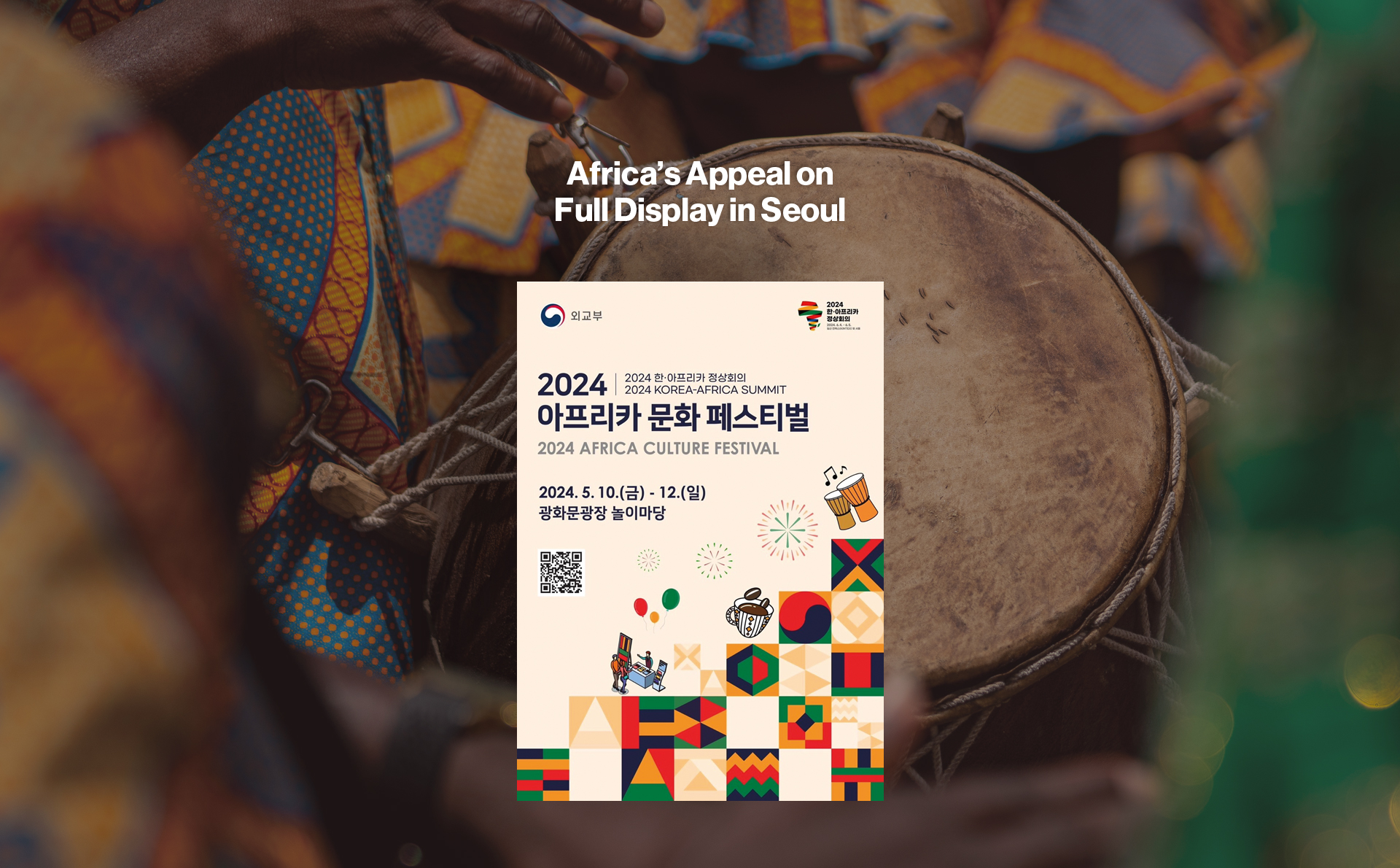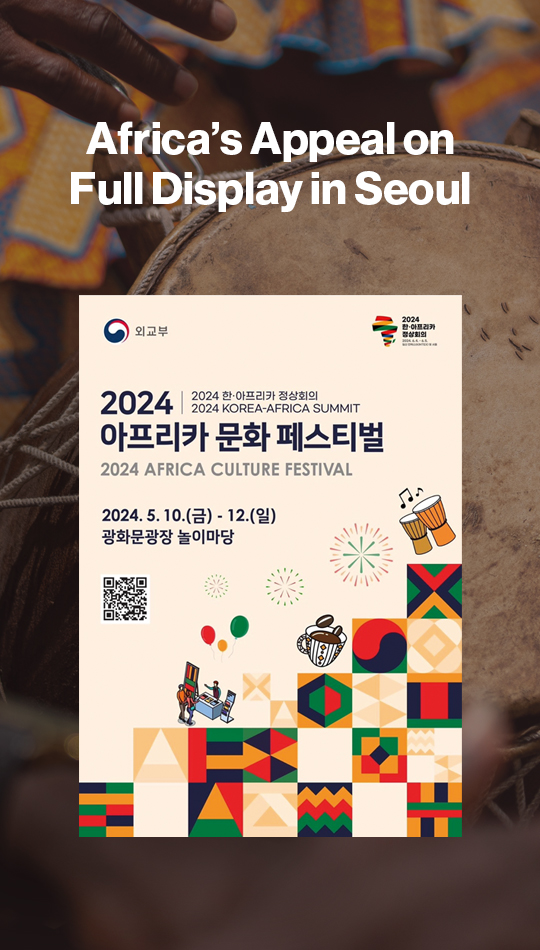In a lively display right in the heart of Seoul, a kaleidoscope of attire, exotic objets d’art unseen in Korea, and joyous dance performances unfolded. The square brimmed with the laughter of residents and travelers alike, relishing the warmth of a spring day accompanied by upbeat music. This vibrant scene wasn’t just happenstance―it was part of the KoreaAfrica Summit festivities slated for June.


Writer.
Jeon Han Korea.net Reporter
Photos courtesy of.
Ministry of Foreign Affairs
The energetic rhythms of traditional African percussion instruments rocked downtown Seoul.
This was the scene at a May 10 concert on the opening day of the 2024 Africa Culture Festival at Gwanghwamun Square in Seoul’s Jongno-gu District.
Hosted by the Ministry of Foreign Affairs to boost public understanding and interest in African culture, the festival featured African history and culture and came ahead of the inaugural Korea-Africa Summit in Seoul from June 4 to 5.
Scheduled from May 10 to 12, the three-day festival featured cultural experiences and interactive programs like introduction to African culture, exhibitions and concerts.
Hordes of people flocked to the cultural experience centers and promotional booths of 15 African embassies including those of Gabon, Ghana, Nigeria, Ethiopia, Egypt, Morocco and Kenya to learn about each country's culture and history. Visitors learned about the diverse and rich cultures of Africa by sampling specialty items at each booth such as coffee, traditional tea and nuts and by seeing traditional relics and handcrafts.
Among the popular programs included sipping traditional coffee from Ethiopia, known as the world’s birthplace of coffee, trying on the outfits of ancient pharaohs from Egypt and traditional costumes of Nigeria, sampling famous mint tea and traditional snacks from Morroco, and listening to percussion instruments from Sierra Leone.
Traditional concerts were also attracting major attention. African acts such as the dance company Tagg, band Djembecola and percussion group Anya Fo performed on the outdoor stage of Gwanghwamun Square.
Also scheduled were performing arts from countries on the continent like traditional dance from nations like Ghana, Angola and Rwanda as prepared by their embassies, a masquerade ball containing the history of Nigerian tribes and a drum performance from Burundi. Visitors also learned traditional African dances.
“I often pass by Gwanghwamun Square and just happened to find today’s festival, and I couldn’t help but stop by,” Seoul resident Kim Yu Jeong said. “It’s amazing to sample specialty nuts from Angola and experience African culture in Seoul.”
Cheruiyou Jael Chepwogen, a Kenyan student who has lived in Korea for three years, said with a smile, “I heartily welcomed the news of the opening of this festival.”
“I am in Seoul but feel like I am in Africa,” she added. “It’s good that many people including Koreans can feel African culture here.”
At the festival’s opening ceremony, Minister of Foreign Affairs Cho Tae-yul said, “I believe that today’s culture festival will provide my fellow Koreans with valuable opportunities to explore and immerse themselves in the diverse culture and heritage of Africa.”
"I'm confident that the 2024 Korea-Africa Summit will set a milestone in Korea-Africa relations heralding the opening of a new era."
Gabonese Ambassador to Korea, Carlos Victor Boungou, who is concurrently dean of the diplomatic corps in Korea, said he hopes this festival boosts mutual understanding between Korea and Africa.
"The upcoming Korea-Africa Summit to be hosted by Korea next month in Seoul will undoubtedly deepen culture relations between Korea and Africa while at the same time reinforcing political and economic ties," he added.
